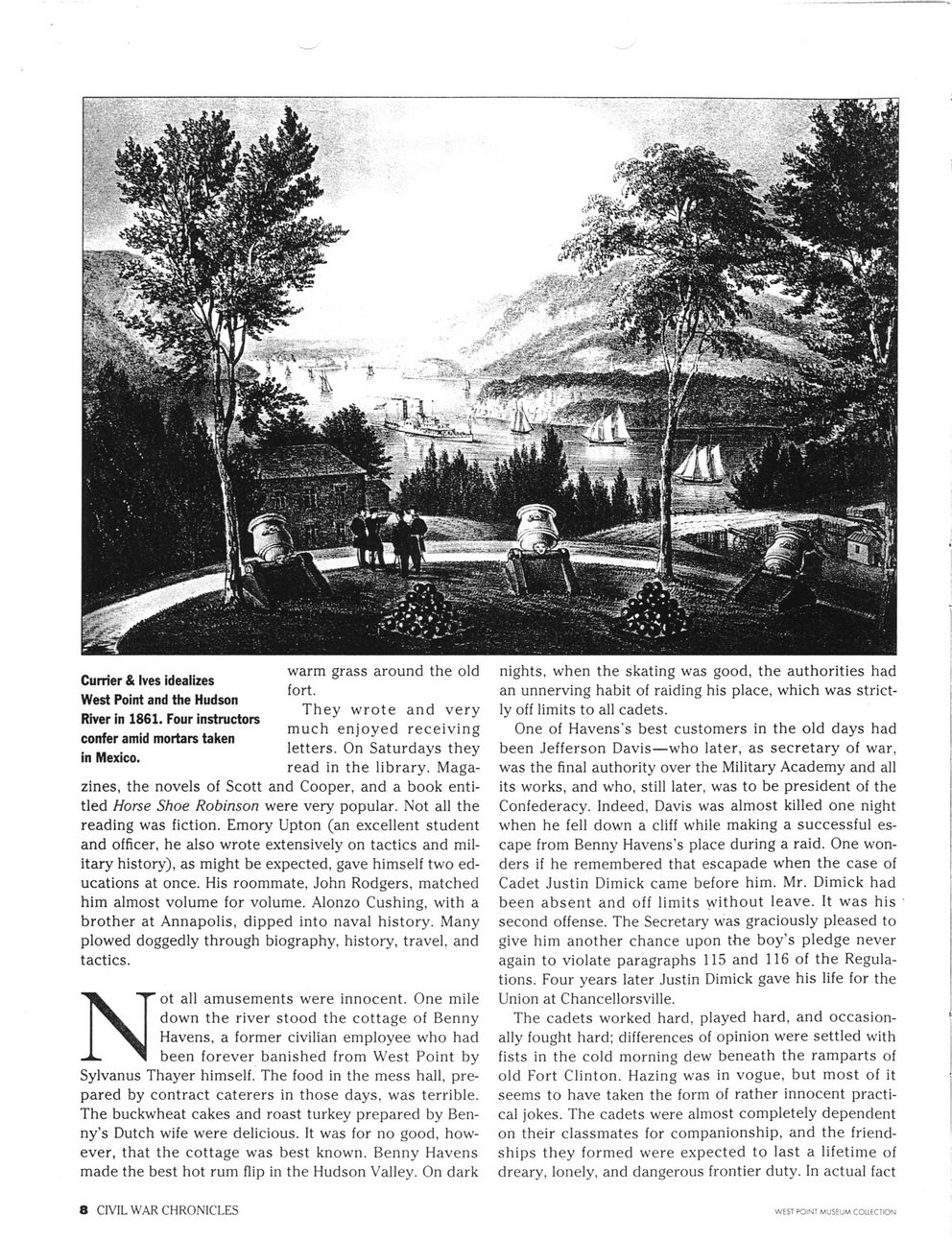This text was obtained via automated optical character recognition.
It has not been edited and may therefore contain several errors.
Currier & Ives idealizes West Point and the Hudson River in 1861. Four instructors confer amid mortars taken in Mexico. warm grass around the old fort. They wrote and very much enjoyed receiving letters. On Saturdays they read in the library. Magazines, the novels of Scott and Cooper, and a book entitled Horse Shoe Robinson were very popular. Not all the reading was fiction. Emory Upton (an excellent student and officer, he also wrote extensively on tactics and military history), as might be expected, gave himself two educations at once. His roommate, John Rodgers, matched him almost volume for volume. Alonzo Cushing, with a brother at Annapolis, dipped into naval history. Many plowed doggedly through biography, history, travel, and tactics. N^ot all amusements were innocent. One mile down the river stood the cottage of Benny Havens, a former civilian employee who had been forever banished from West Point by Sylvanus Thayer himself. The food in the mess hall, prepared by contract caterers in those days, was terrible. The buckwheat cakes and roast turkey prepared by Benny?s Dutch wife were delicious. It was for no good, however, that the cottage was best known. Benny Havens made the best hot rum flip in the Hudson Valley. On dark nights, when the skating was good, the authorities had an unnerving habit of raiding his place, which was strictly off limits to all cadets. One of Havens's best customers in the old days had been Jefferson Davis?who later, as secretary of war, was the final authority over the Military Academy and all its works, and who, still later, was to be president of the Confederacy. Indeed, Davis was almost killed one night when he fell down a cliff while making a successful escape from Benny Havens?s place during a raid. One wonders if he remembered that escapade when the case of Cadet Justin Dimick came before him. Mr. Dimick had been absent and off limits without leave. It was his second offense. The Secretary was graciously pleased to give him another chance upon the boy?s pledge never again to violate paragraphs 115 and 116 of the Regulations. Four years later Justin Dimick gave his life for the Union at Chancellorsville. The cadets worked hard, played hard, and occasionally fought hard; differences of opinion were settled with fists in the cold morning dew beneath the ramparts of old Fort Clinton. Hazing was in vogue, but most of it seems to have taken the form of rather innocent practical jokes. The cadets were almost completely dependent on their classmates for companionship, and the friendships they formed were expected to last a lifetime of dreary, lonely, and dangerous frontier duty. In actual fact 8 CIVIL WAR CHRONICLES WEST POINT MUSEUM COLLECTION

Ames, Adelbert Civil-War-Chronicles-page08